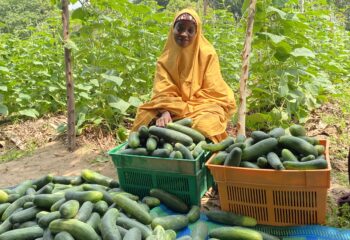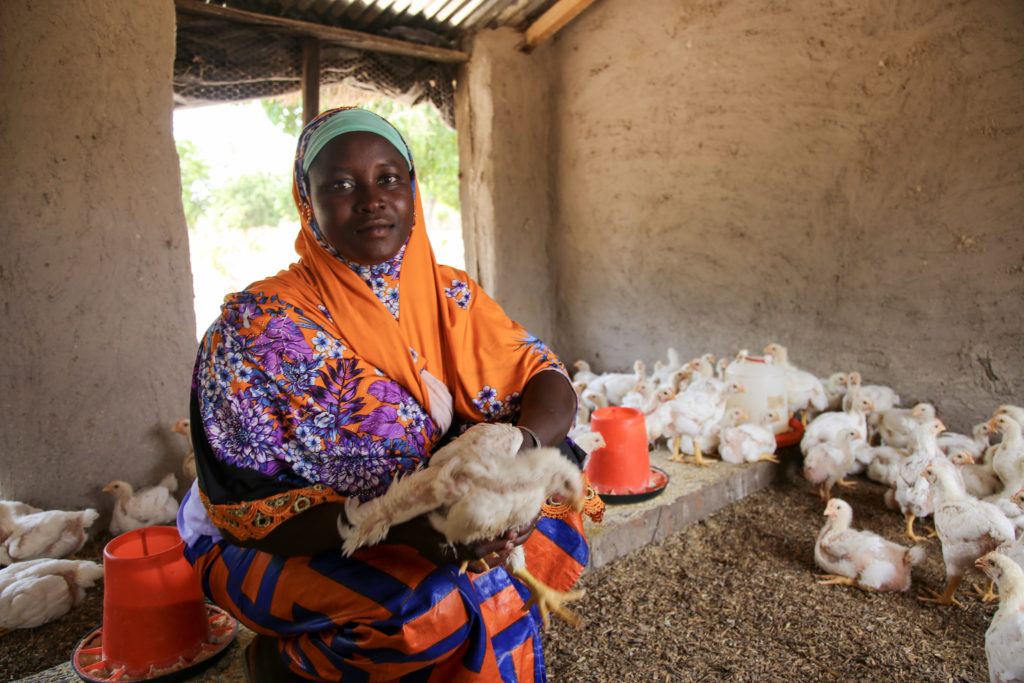
Salimata Bengaly is a 27-year-old woman who is married, with four children. After eight years of school, she left to work in the fields with her parents. Thanks to the training and coaching activities of the Feed the Future Mali Sènè Yiriwa Agricultural Production Activities in Sikasso project, funded by the U.S. Agency for International Development (USAID), Salimata became an agricultural extension worker in the village of Siramana in Sikasso in 2021. In addition to systematically transferring the knowledge acquired during project activities, Salimata has used the travel allowance she received during training to create other sources of income besides agriculture. Salimata is now involved in poultry farming, with 300 chickens, including 150 broilers. With Salimata’s commitment and sharing of her learnings with the community after each Feed the Future Mali Sènè Yiriwa training, other producers have also decided to add poultry farming to their activities.
Salimata has become a resource and an example of success in her community.
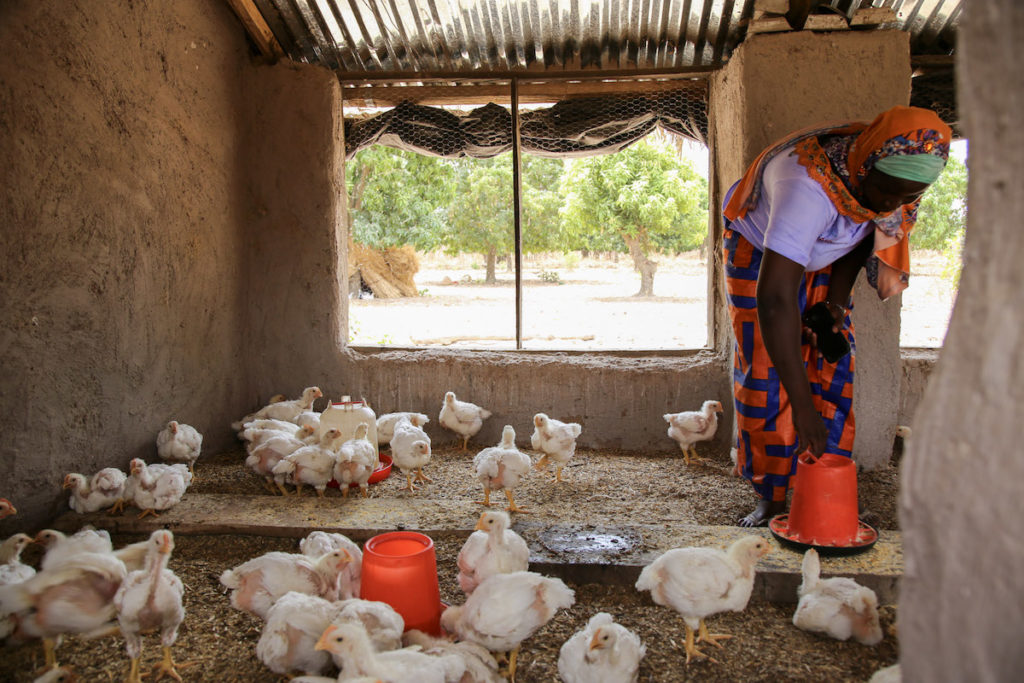
Why did you start raising poultry in addition to farming?
Today, it is difficult to support all of our needs with only one activity. That is why it is important to diversify sources of income. It is a concept I learned from Feed the Future Mali Sènè Yiriwa, which encouraged integrating poultry farming with our agricultural activities. I had been raising animals, but it was not a serious activity. Thanks to the training on poultry from Feed the Future Mali Sènè Yiriwa, I decided to make it a business. I now also raise broilers.
What motivated you to invest your training allowance in this activity?
I was hired as an extension worker by the village. Therefore, in addition to sharing what I have learned with the village, I am obligated to practice what I have learned to serve as an example and to strengthen the capacity of all, so that the village can prosper. That is why I have invested in this activity. And I thank God for this inspiration.
It is true that I could have used the transportation allowance received during the training to buy clothing or jewelry, but I preferred to invest in development by diversifying my activities, as advised by the project.
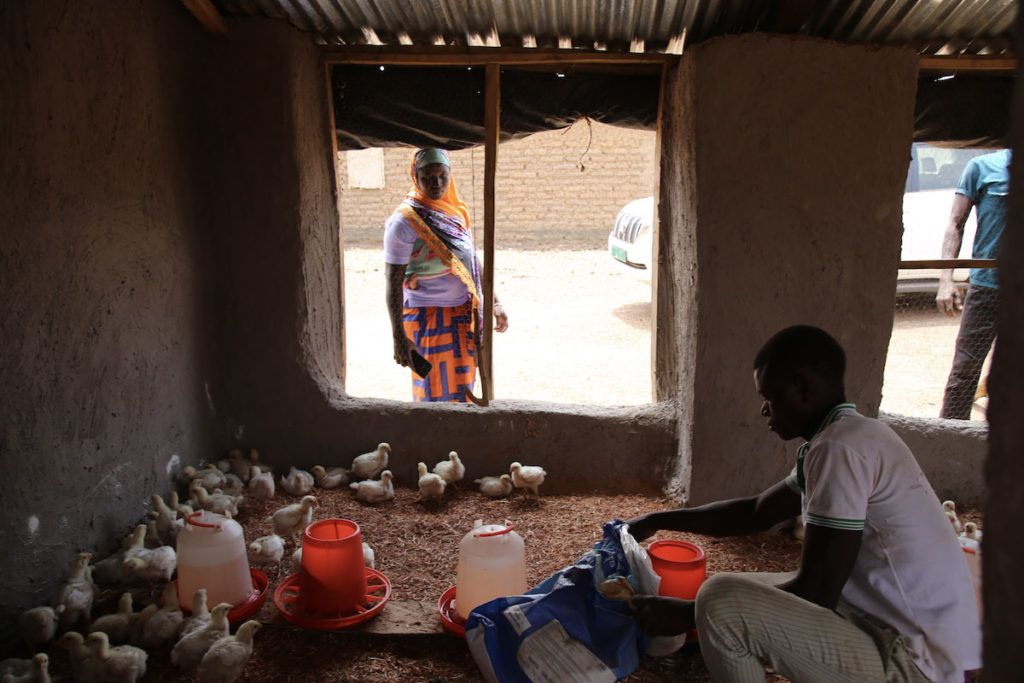
What did the Feed the Future Mali Sènè Yiriwa training bring to your business?
The training on the different diseases, vaccinations, good food for poultry, and the use of droppings for making organic manure have strengthened my capacity on these subjects. I am on my third cycle of broiler production. I started with 200 chickens but later reduced this to 150 for space concerns.
I am currently expanding the barn to hold 500 birds. I also plan to start raising laying hens.
I have 300 chickens, 150 of which are ready to be sold. Each one brings an average of 2,500 CFA francs (about $4.25). I also have guinea fowl.
What are the advantages of this diversification of activities?
The poultry allows me to have material to produce organic manure for market gardening and agriculture, which improves productivity. The profits also allow us to hire labor to plow the fields and pay for the children’s schooling. With the eggs, vegetables from the market garden, and meat from the poultry, we can vary our diet and reduce malnutrition in the community.
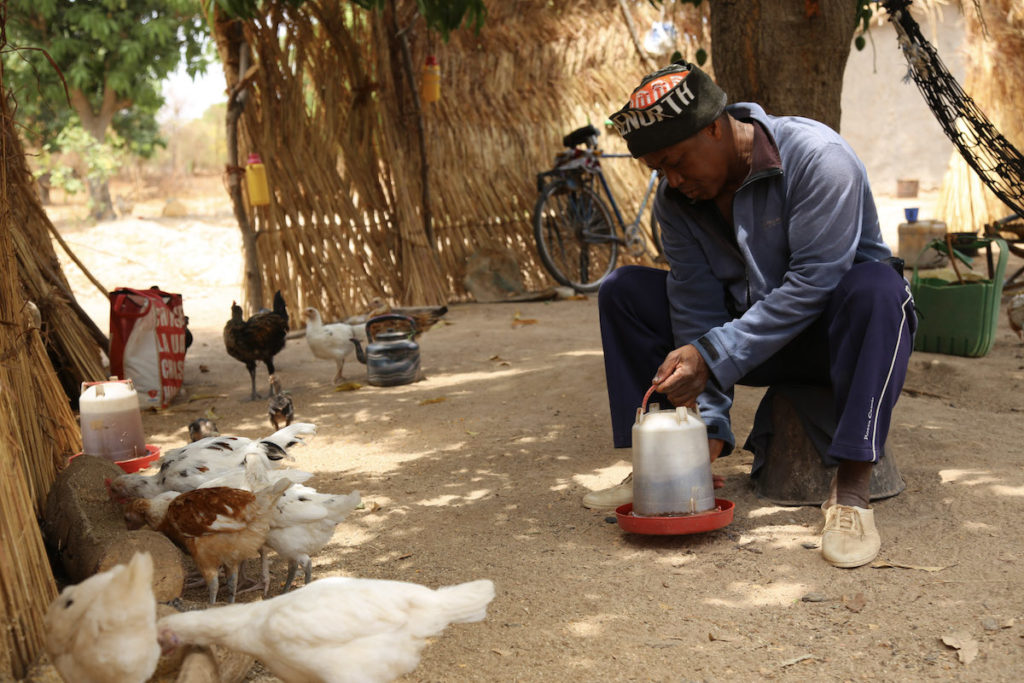
After the training you received on poultry, what actions have you taken to raise awareness of the knowledge and information within your community?
As soon as I return, I organize sessions to teach the community what I have learned. I use my own market gardening and poultry farming activities as a means of practical training. Poultry farming is now a business for many farmers in my village today. For example, last year I was the only one with broilers in the village, but now there are four of us.
What are the benefits realized during the different campaigns?
For the first round of 200 chickens, I had a profit of 162,000 CFA francs (about $271.50). With the second round of 100 chickens, I had a profit of 120,500 CFA francs (about $202). With the third round of 150 chickens, I expect a profit of 176,000 CFA francs (about $295).
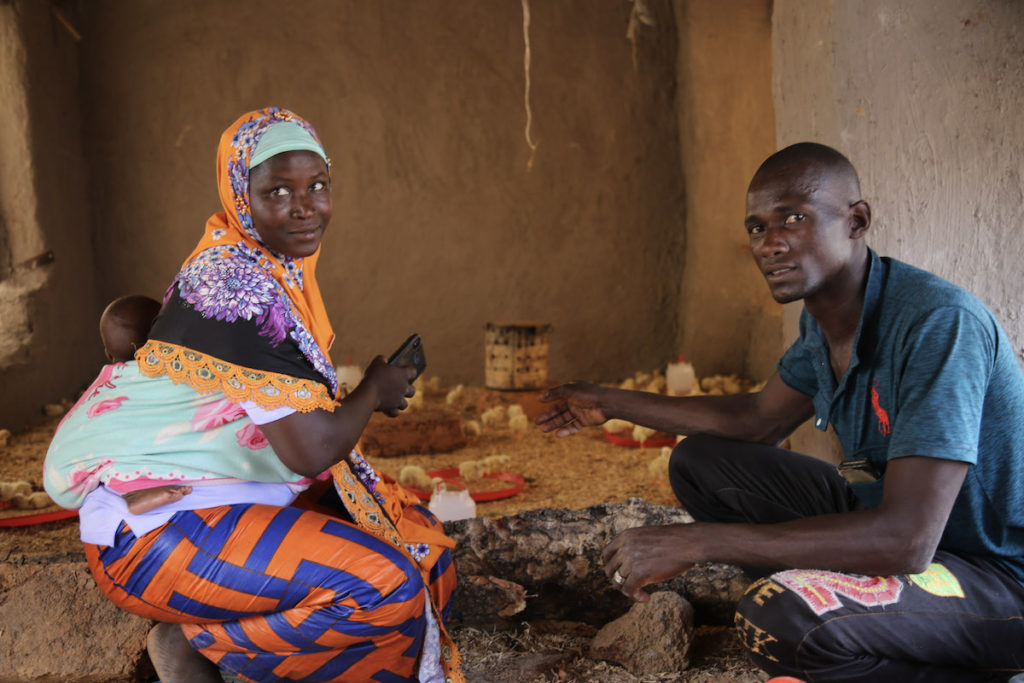
With your participation in the activities of Feed the Future Mali Sènè Yiriwa, what status do you have in Siramana?
Today, I have become a resource and an example in my village. Many young people take their lead from me. I have become a woman leader.
Salif Diango Bengaly, Salimata’s husband, had this to say: “After the training, she told me ‘We can make poultry farming a business.’ I followed her in this direction, and today the activity is progressing well. We have increased our production compared to last year. The knowledge that she brings from Sènè Yiriwa’s trainings has allowed us to improve our practices and increase our income. So, I totally support what she is doing, because it is for our good and that of the whole village.”
A member of the community, Zanouchi Karamoko Sankaré, noted: “We only know agriculture, and after the rainy season, we do nothing else. However, with the learnings from Salimata on poultry breeding, we said to ourselves that we can sell chickens in addition to farming. I already had some chickens, but in March 2023, I started raising 200 broiler chickens. We hope that Feed the Future Mali Sènè Yiriwa will continue to strengthen Salimata and that when she returns, she will guide us. We also need a market to sell our products more easily.”
More About the Feed the Future Mali Sènè Yiriwa Project
Funded by the U.S. Agency for International Development (USAID), the Feed the Future Mali Sènè Yiriwa Agricultural Production Activities in Sikasso project is implemented by RTI International, in collaboration with its consortium partners: Association des Organisations Professionnelles Paysannes (AOPP), Interchurch Organization for Development Cooperation (ICCO), IFDC, Institut Polytechnique Rural de Formation et de Recherche Appliquée (IPR-IFRA), North Carolina Agricultural and Technical State University, and Vétérinaires Sans Frontières (VSF).
The Feed the Future Mali Sènè Yiriwa project’s objective is to sustainably scale up the productivity of key value chains, leading to better consumption of nutritious food and resilience of farm households. This is achieved through a farmer-centered approach, which capitalizes on existing producers.



